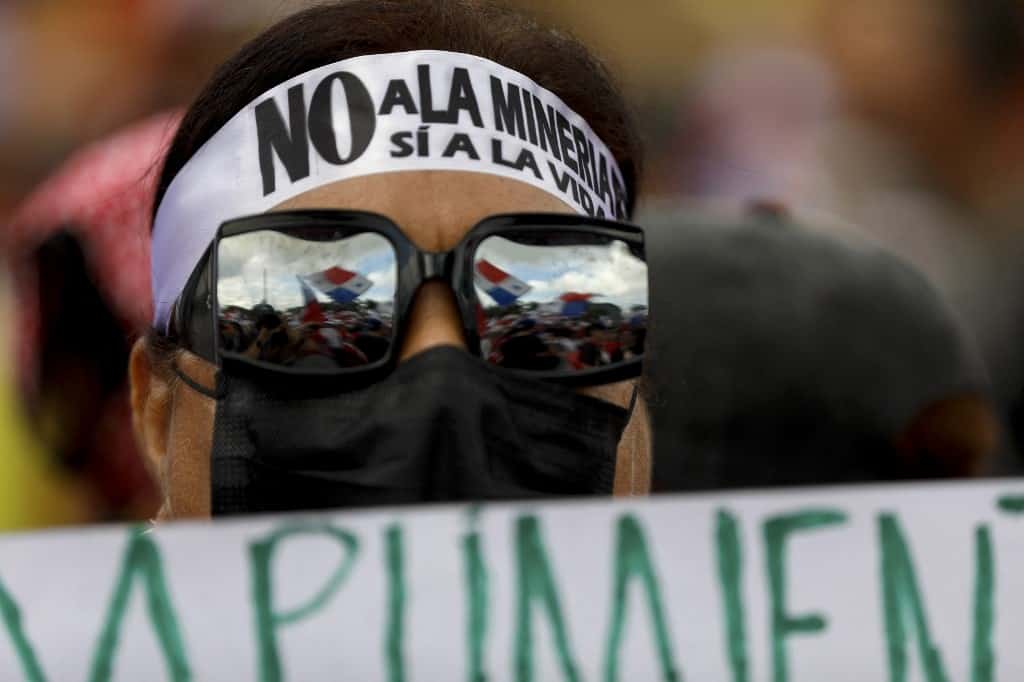Panama’s President Laurentino Cortizo on Sunday proposed holding a referendum to decide whether to repeal the mining contract that sparked massive protests in the country nine days ago. Protest leaders, however, announced that demonstrations will continue in the streets.
In his brief two-minute message, Cortizo said he will ask the electoral court to convene the referendum for December 17, and Congress to pass a law banning “metallic mining nationwide.”
“Through citizen participation, by voting we can legitimize the will of the people, the result of which will be mandatory,” he stated. “The people are sovereign.”
Nonetheless, protest leaders shortly after said the president seeks to divide and confuse the movement.
“Enough mockery. Actions continue in the streets. The law must be repealed. This is the people’s mandate. There is no maneuver in this fight that deceives the people,” said construction union leader Saul Mendez.
The youth movement Get Out of the Networks called for a demonstration on Monday heading to Congress, stating: “The Referendum is in the Streets. The people have spoken.”
Cortizo issued his message after concluding a massive gathering in the capital, where tens of thousands demanded repealing the contract allowing Canadian company First Quantum Minerals (FQM) to operate Central America’s largest open-pit copper mine in Panama’s Caribbean region.
The crowds congregated in the afternoon and into the night along the capital’s oceanside Balboa Avenue, waving flags and shouting slogans against the government and mining.
“This is a historic moment, there is no rest when our environment is in danger. I fight for the country my ancestors left me,” 28-year-old Victor Gonzalez said at the rally.
Adding Fuel to the Fire
Public unrest erupted on October 20 when Congress approved the law allowing FQM to operate the open pit mine for 40 years. Cortizo enacted it that same night.
In an unusual protest movement for Panama, thousands of citizens kept joining daily, with roadblocks in the capital and several provinces, strikes by teachers, doctors, construction workers, transport workers and other unions. Classes were suspended all week.
Attempting to curb the protests, Cortizo prohibited new metallic mining concessions by executive decree on Friday, but maintained the contract with the Canadian company, further stoking anger.
In addition, protesters demand a mining moratorium by law, not by an administration’s executive decree.
Given the roadblocks, shortages of some goods began. Trucks loaded with vegetables from the agricultural province of Chiriqui bordering Costa Rica have been left stranded.
Journalists on Sunday confirmed dozens of stalls were closed at the wholesale market supplying 80% of the vegetables consumed in the capital.
After the marches ended, clashes erupted in some areas between protesters wearing hoods and police, along with acts of vandalism. Around 500 people have been detained nationwide.
Risk of Lawsuits
The law approved by Congress sealed the agreement signed this year between the mining company and the government, negotiated after the Supreme Court in 2017 ruled the original exploitation contract unconstitutional since it was made without bidding.
The government defends the contract arguing it includes minimum annual contributions by the mining company to the state of $375 million, ten times the amount in the initial agreement.
It has warned that voiding the contract would result in the loss of 8,000 direct and 40,000 indirect jobs, besides the country being exposed to billion-dollar lawsuits in international courts.
The mining company contributes 4% of Panama’s GDP and exports about 300,000 tons of copper concentrate yearly from Puerto Rincon, where demonstrators arrived Saturday in a dozen boats.
In a statement, the company said the protest represented a “threat” to its operations and personnel but did not comment on the country’s turmoil.
The mine is located in a remote area of the Caribbean, 240 km from the capital. It began operations in February 2019.






